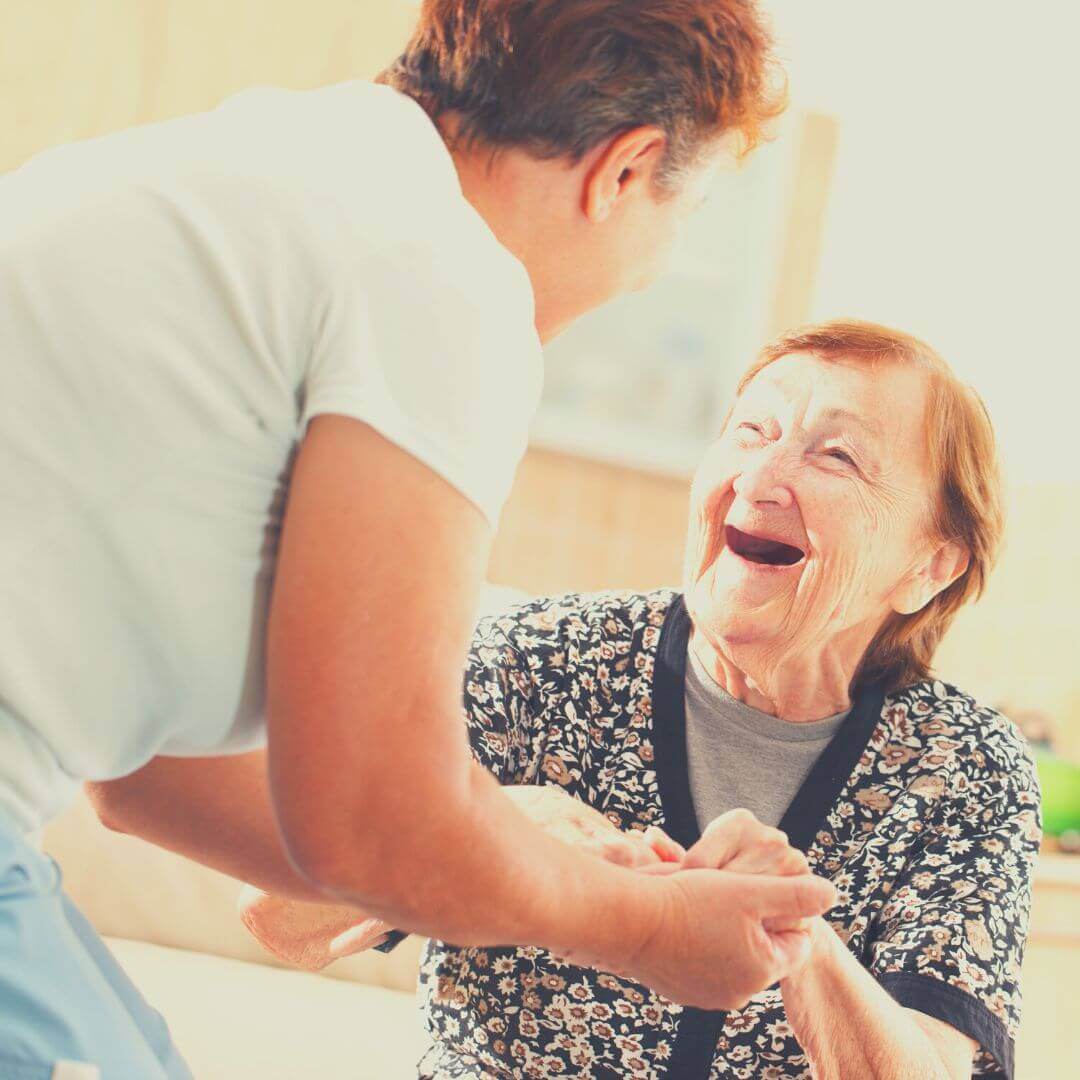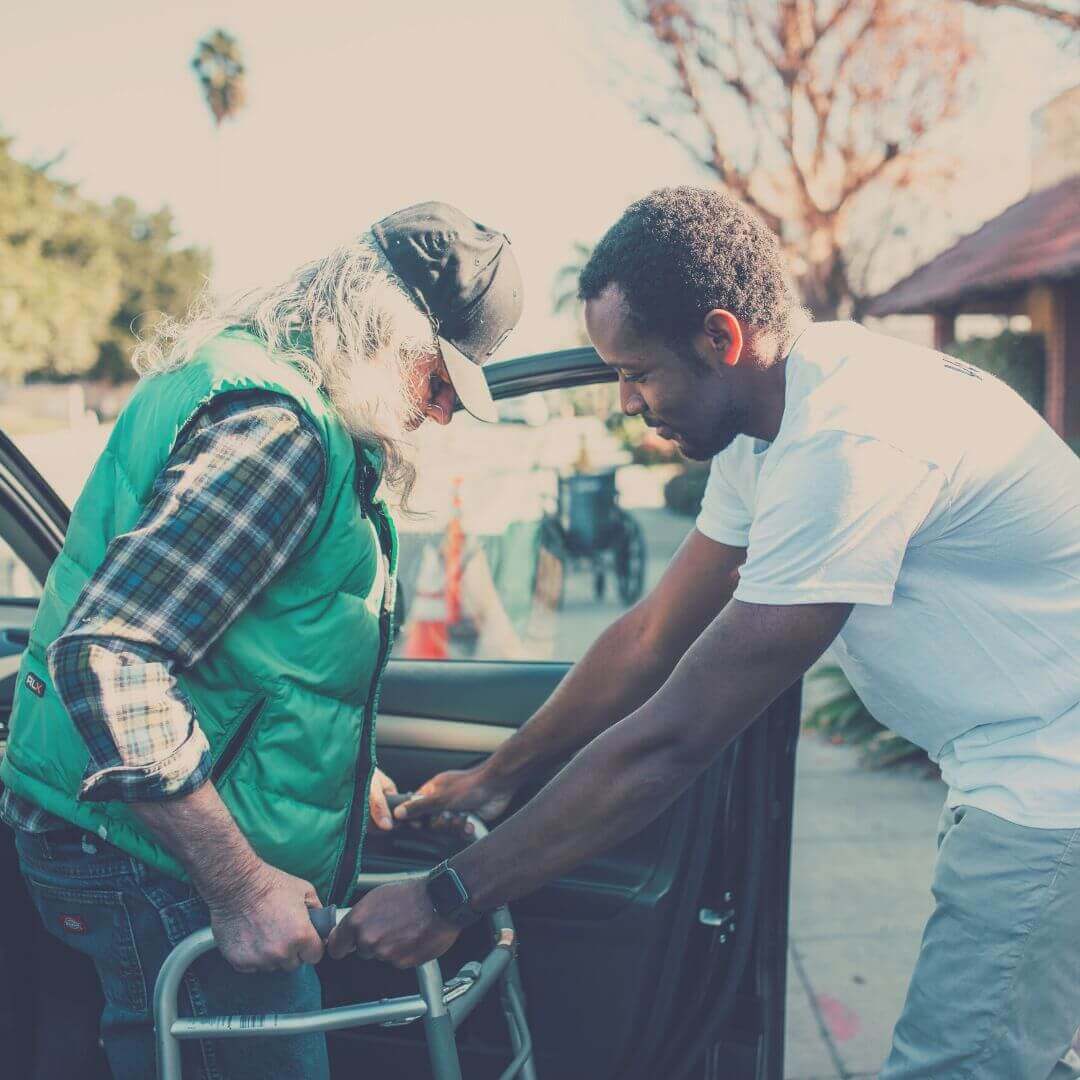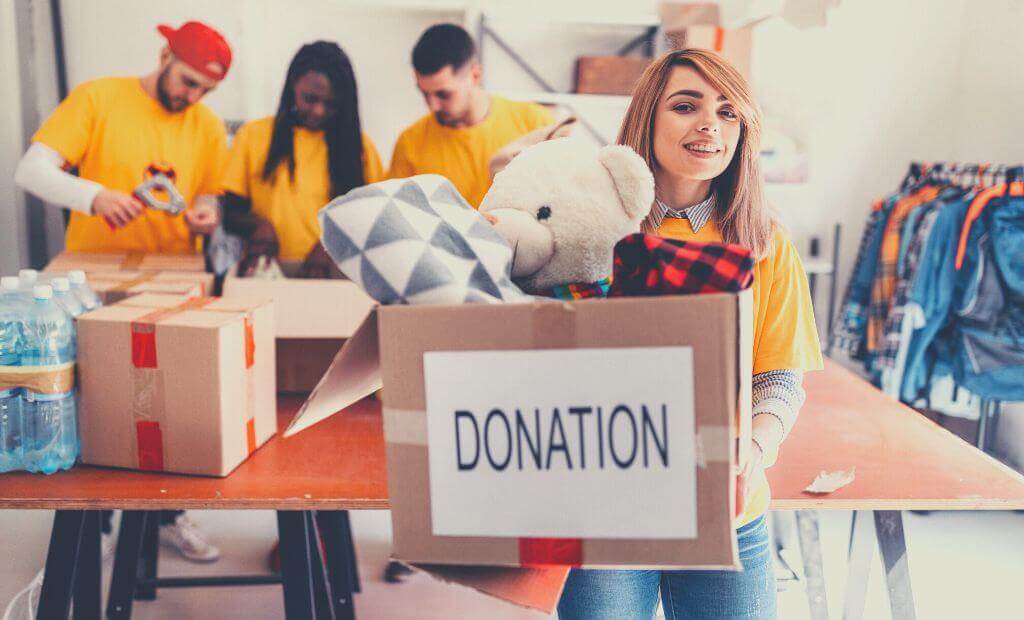Have you ever done something kind for someone else, like giving to charity, and you felt good after doing it? Chances are you were probably experiencing helper's high.
Did you know that helper's high is more than just feeling good about doing good? It involves a positive physical change in your body and mind.
In this post, I'm going to share with you how the body reacts to helping others, while providing 9 reasons why helping others makes us happy. It’s a great way to heal yourself inside and out!
What is the Helper's High?
Helper's high refers to that happy feeling you get after helping someone. More accurately, it's that euphoric feeling that you get after you've done something good for someone else. It's called a high because it's actually a chemical response in the brain to performing an act of kindness.
Therefore, it really is a natural high. As you perform an act of kindness for someone, your brain and the rest of your body respond positively due to chemicals released in the brain. As you can see, this is more than a feeling. It's a biological response to helping others.
As a result, it creates a train reaction of other positive effects. Thus, helping others produces a positive effect on your mental and physical health. In other words, your brain was designed for helping others.
Think of it this way. Helping others benefits human survival. Therefore, our brains are designed to motivate us to do good.
Why Is Doing Good Innate for Some, While Others Have to Learn?
Actually, that question needs to be addressed from a different angle. Why are some people not in touch with this primal instinct?
The answer to that question comes down to nature versus nurture. For some, it's an issue of a chemical deficiency. Since it's been proven that this euphoria is a chemical response in the brain, it makes sense that individuals experiencing a lack of these chemicals would struggle with achieving this feeling of well-being associated with acting kind toward others.
On the other hand, the situation may arise in others because of environmental factors, such as upbringing or distractions in the home. For example, if a child is taught to disregard this drive to help others early in life, a pattern of a lack of charity will emerge.

Also, if someone grows up in poverty, they may be distracted from helping others due to needs in their own life.
Whether it's someone's natural tendency to help others or it's a trait they've learned, helping others makes us happy according to scientific research.
9 Reasons Why Helping Others Makes Us Happy
1. Kindness Toward Others Releases Endorphins
When you do a good deed for someone else, your brain releases endorphins. Endorphins are hormones that have pain-relieving properties. Think of it as your body's natural morphine. These endorphins create the same high you would feel after taking morphine.
Endorphins are released in response to pain or stress. At the same time, pleasurable activities also release endorphins. For example, that's why some people get a rush from exercising, because exercising brings them pleasure.
In the same way, helping others brings you pleasure because of the release of endorphins. Helping others can provide you with the same rush as exercising. Because of this, you could say that endorphins make you feel good naturally.
2. Releases the Love Hormone
In addition to releasing endorphins, studies have shown that altruistic acts also release other hormones like oxytocin. This hormone has been shown to elevate mood.
For example, oxytocin is sometimes called the love hormone because it plays a part in trusting others and forming bonds. Incidentally, oxytocin is released when a mother is nursing her baby. It helps form the bond between mother and baby.
When you do good for others, you're increasing your oxytocin, which means your trust in others will strengthen. As a result, more oxytocin means you experience more positive relationships, which makes you happy.
3. Produces a Calming Effect
Along with oxytocin and endorphins, your brain releases serotonin when you help others. Serotonin is a neurotransmitter that your brain uses to pass messengers of well-being to the rest of your body.
Thus, serotonin helps regulate your mood by producing a calming effect. When your serotonin levels are normal, you feel emotionally stable, which produces this clamming effect.
Think of it as a balancing act. Lower serotonin means increased anxiety. Normal levels of serotonin mean lowered levels of anxiety, which leads to calmness.
4. Reduces Stress
Your body's stress response is regulated by the hormone cortisol. During times of high stress, your body will release cortisol as part of the fight or flight response. High levels of cortisol can lead to blood sugar imbalances, decreased bone density and muscle tone, high blood pressure, and increased abdominal fat.
The hormones, like oxytocin, serotonin, and dopamine, that are released when you help others work together to block cortisol in your body. In turn, this lowers your stress.
In fact, one study determined that kind people have 23% less cortisol more than others. Therefore, acting out of kindness toward others reduces stress. Less stress leads to happiness.
5. Improved Immune System Function
Studies have proven that immune system function is tied to stress levels. Your immune system suffers under large amounts of stress. As your immune system weakens, then you become susceptible to illness or infection.
Because being charitable reduces stress, you can conclude that it also promotes a healthy immune system. This allows your body to fight off infection better. By being a help to others, you're promoting a healthier immune system. A healthier immune system gives you cause to be happy.
6. Better Health
All of these previous reasons add up to one further conclusion- better health, both physically and mentally. With the release of these helpful hormones and the blocking of cortisol, you experience secondary effects. These include better weight control, lower blood pressure, relief from depression and chronic pain.
Studies have been conducted to determine whether or not being charitable affects your health. One study involved cancer patients helping other cancer patients.
One group only received medical care, while another group received medical care along with attending a patient support group that included compassion for other patients as part of the session. The patients involved in the support group experienced healthier outcomes than the ones that did not.
Therefore, based on studies conducted, helping others provides for better health.
7. Live Longer
With better health and less stress comes a longer life. Being altruistic has been proven to allow for longer living. According to one study, people that give help to others have a 44% likelihood of dying early, which is less than those that don't give help to others.
This is due to the other health benefits mentioned previously along with a much happier outlook on life.
8. Feeling of Satisfaction
When you help someone else, you know that you've done good. You've made a positive impact on someone else. This gives you a feeling of satisfaction of having done good.
As with the feeling of well-being, this feeling of satisfaction is also a chemical response. When you help someone, dopamine is released in the brain. Dopamine is another hormone that helps with mood evaluation. Dopamine creates this feeling of satisfaction.
Dopamine causes you to feel contentment because it triggers the reward center of the brain. Those with lower levels of dopamine will lack the motivation to help someone.

Therefore, increased levels of dopamine released from being helpful to others will give you motivation to help someone. Thus, it becomes a loop.
You help someone. You get the high. This encourages you to help someone else to feel the same feeling again.
9. Change in Perspective
Ultimately, improved health and happiness causes a change in your perspective. You begin to look at the world more positively. Instead of negatively judging someone's situation, you see them as someone you can help.
Moreover, you've removed your focus off of yourself and placed it on someone else. Your problems become lighter compared to those that you've helped. Plus, helping becomes something you love to do, instead of something you're begged to do.
As with the other reasons, this in turn promotes less stress and better health, which increases your happiness. In turn, this starts the loop all over again because you want to help others to recapture that feeling.
Final Thoughts on Helper's High
The helper's high is a chain reaction of mental and physical reactions that all starts with a decision to do good for someone else. Then, it becomes something you want to repeat over and over.
As a result, you've generated positivity in the lives of those you've helped and in your own life as well. There are many reasons to give, but the fact that it's good for you should be reason enough.
If you want to live a longer and healthier life with reduced stress, help someone and experience the helper's high. It is a win/win situation! Need a bit more convincing? Then check out 21 Bible Verses About Helping Others in Need.


